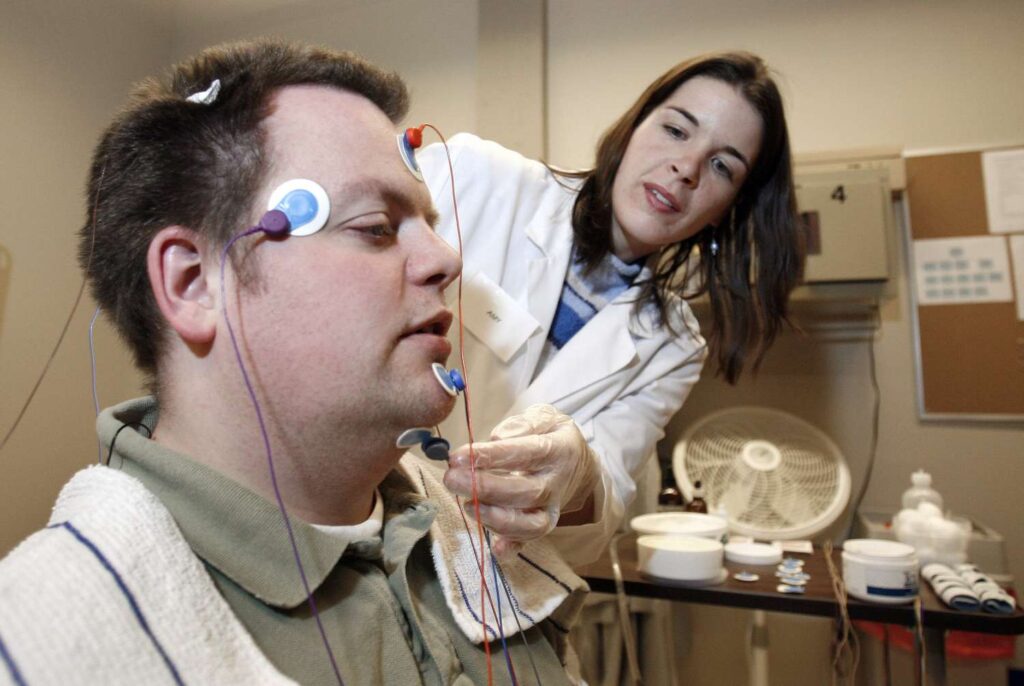Introduction to Sleep Studies
Sleep studies, also known as polysomnography, are essential diagnostic tools used to evaluate various sleep disorders. These studies monitor a range of bodily functions while a person sleeps, including brain activity, eye movement, heart rate, and breathing patterns. The results can provide crucial insights into conditions such as sleep apnoea, insomnia, and restless leg syndrome.
Despite their importance, many individuals hesitate to undergo a sleep study due to concerns about costs. However, understanding the true cost of these studies can reveal that they may be more affordable than initially perceived.
In addition to the financial aspect, many people are unaware of the comprehensive nature of sleep studies and the advanced technology involved. During the procedure, patients are typically placed in a comfortable, quiet room equipped with sophisticated monitoring devices that track their physiological signals throughout the night. Technicians observe the data in real-time, ensuring that any unusual patterns are noted and addressed promptly. This level of monitoring not only aids in diagnosing sleep disorders but also helps in tailoring specific treatment plans that can significantly improve a patient’s quality of life.
In conclusion, while the cost of a sleep study may seem high at first glance, it is essential to weigh this expense against the potential health benefits. With various types of studies available, as well as financial assistance options, individuals can find a solution that fits their needs and budget.
Furthermore, sleep studies can be conducted in various settings, including specialised sleep clinics and even at home, depending on the severity of the suspected disorder. Home sleep tests, for instance, are becoming increasingly popular as they offer a more convenient and less intimidating option for patients. These tests typically involve simpler equipment, allowing individuals to undergo monitoring in the comfort of their own beds, which can lead to more accurate and natural sleep data. As awareness of sleep health continues to grow, the accessibility and understanding of sleep studies are likely to improve, encouraging more individuals to seek the help they need.

Types of Sleep Studies
Before delving into costs, it is essential to understand the different types of sleep studies available. Each type serves a unique purpose and varies in complexity and cost.
In-Lab Sleep Study
The in-lab sleep study is the most comprehensive option, typically conducted in a specialised sleep centre. During this study, patients are monitored overnight in a controlled environment, allowing for detailed analysis of sleep patterns and disturbances. While this option provides the most accurate results, it is also the most expensive, often ranging from £1,000 to £3,000, depending on the facility and location. The study involves the use of various sensors attached to the body, which track brain waves, oxygen levels, heart rate, and breathing patterns throughout the night. This extensive monitoring enables sleep specialists to identify a range of disorders, from insomnia to more complex conditions like narcolepsy, providing a thorough understanding of the patient’s sleep architecture.
Read more on: Private Sleep Study Cost vs. Long Wait Times
Home Sleep Apnoea Test (HSAT)
For those suspected of having sleep apnoea, a Home Sleep Apnoea Test (HSAT) may be recommended. This test involves using portable monitoring equipment that patients can use in the comfort of their own homes. Although HSATs are generally less comprehensive than in-lab studies, they can be a cost-effective alternative, typically costing between £150 and £500. The equipment usually includes a device that measures airflow, oxygen saturation, and heart rate, which can effectively identify obstructive sleep apnoea. However, it is important to note that HSATs may not detect other sleep disorders, so they are most suitable for patients with a clear suspicion of sleep apnoea rather than a broad spectrum of sleep issues.

Split-Night Sleep Study
A split-night sleep study combines diagnostic and treatment phases. Initially, the patient undergoes a standard sleep study to diagnose any sleep disorders. If sleep apnoea is confirmed, the second half of the night involves the patient using a CPAP machine. This option can be beneficial for those who may require immediate treatment and can cost between £1,500 and £2,500. The split-night study is particularly advantageous as it allows for real-time assessment of the effectiveness of CPAP therapy, enabling healthcare providers to make timely adjustments to the treatment plan. Additionally, this approach can significantly reduce the time between diagnosis and the initiation of therapy, which is crucial for patients experiencing severe symptoms that impact their daily lives. Read more about effectiveness on https://www.tandfonline.com/toc/uree20/current
Factors Influencing the Cost of Sleep Studies
Understanding the various factors that influence the cost of sleep studies can help individuals make informed decisions regarding their healthcare. Several key elements contribute to the overall expense.
Location and Facility
The geographical location and the specific facility where the sleep study is conducted can significantly impact costs. Urban centres with higher living costs tend to charge more for medical services, including sleep studies. Additionally, well-established sleep centres with advanced technology may have higher fees than smaller clinics.
Insurance Coverage
Insurance coverage plays a crucial role in determining out-of-pocket expenses for sleep studies. Many health insurance plans cover a portion of the costs associated with sleep studies, particularly if they are deemed medically necessary. It is advisable for individuals to check with their insurance provider to understand their coverage and any potential out-of-pocket expenses.
Additional Tests and Follow-Up Appointments
In some cases, additional tests may be required to confirm a diagnosis or monitor treatment effectiveness. These tests can add to the overall cost of the sleep study. Furthermore, follow-up appointments with a sleep specialist may also incur additional fees, which should be factored into the total cost.
Potential Financial Assistance and Payment Plans
For those concerned about the financial burden of a sleep study, several options may help alleviate costs. Many sleep centres offer financial assistance programmes or payment plans to make the process more manageable.
Financial Assistance Programmes
Some sleep clinics provide financial assistance programmes for patients who demonstrate financial need. These programmes may offer reduced rates or payment options based on income. It is advisable to inquire about such opportunities when scheduling a sleep study.
Payment Plans
Many facilities also offer payment plans, allowing patients to spread the cost of their sleep study over several months. This can make the expense more manageable and reduce the financial strain associated with upfront payments.
The Importance of Seeking Treatment
While the cost of a sleep study may seem daunting, it is essential to consider the potential long-term benefits of seeking treatment for sleep disorders. Untreated sleep issues can lead to a range of health complications, including cardiovascular problems, diabetes, and impaired cognitive function. To know more about disorders click here.
Health Risks of Untreated Sleep Disorders
Sleep disorders can significantly impact an individual’s overall health and well-being. Conditions such as sleep apnoea can lead to increased blood pressure, heart disease, and stroke. Additionally, chronic sleep deprivation can contribute to mental health issues, including anxiety and depression.
Improved Quality of Life
Undergoing a sleep study and receiving appropriate treatment can lead to significant improvements in quality of life. Individuals may experience better sleep, increased energy levels, and enhanced cognitive function. These improvements can positively impact personal relationships, work performance, and overall happiness.
Conclusion: A Worthwhile Investment in Health
Investing in a sleep study can lead to a better understanding of sleep disorders and pave the way for effective treatment. Ultimately, prioritising sleep health is an investment in overall well-being, making the true cost of a sleep study more affordable than many might think.

